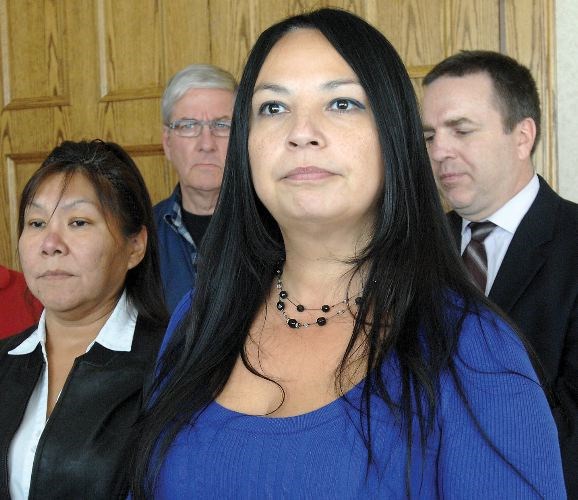After nearly two decades, Brenda Wilson has found a reason to smile about the investigation into her sister Ramona's 1994 disappearance.
"Eighteen years ago, myself and my mom were in this thing by ourselves and that's how it felt," she said. "But today, it feels like we have a lot of support and I really appreciate E-Pana and Carrier Sekani and all the other organizations that have come together to collaborate and try to find answers."
Wilson was speaking outside of an annual meeting held for family members of women murdered or missing along the Highway of Tears. For the ninth year, the families met with the E-Pana investigation team responsible for looking into the cases of the 18 women lost along stretches of Highways 16, 5 and 97 from 1969 to 2006.
"The idea of today's meeting is to remember the victims," said Insp. Gary Shinkaruk, who is in charge of the B.C. RCMP's special projects in the major crime section. "Although we try to understand the true pain and just utter despair that they must feel every day, it's still beneficial for us to get together to meet with them, to provide a lot of inspiration to the investigators."
The day-long meeting also allowed the 20 family representatives to interact with members of various RCMP groups and support services and receive updates on other initiatives, such as the University of Northern B.C.'s study on hitchhiking.
Mary Teegee, director of child and family services at Carrier Sekani Family Services, said the there was a level of optimism in the room amongst family members, given the closure of one of the cases.
Last month police announced a deceased American convict, Bobby Jack Fowler, was responsible for the 1974 death of Colleen MacMillen. Fowler was connected to the crime using new DNA technology and is still held as a strong suspect for the cases of Gale Weys and Pamela Darlington.
Shinkaruk said more than 300 tips have come in since information about Fowler was released.
Jack Hoar - whose daughter Nicole disappeared after a June 2002 sighting at a gas station west of Prince George - said despite any progress made, there is still a demand for more information.
"And I think one of the things that's very real is, in all these cases, there may be somebody that's afraid something will happen to them if they talk about something or provide information," Hoar said. "Times change over the years and now they might feel more comfortable about coming forward and letting police, or anybody in the community know, what they think might have happened."
Tips can be provided to the E-Pana tip line at 1-877-543-4822. Carrier Sekani Family Services also collects tips at 250-562-3591.
"We really encourage, even if people think it's trivial or we already know, please contact us and let us be the person that determines that," Shinkaruk said.



